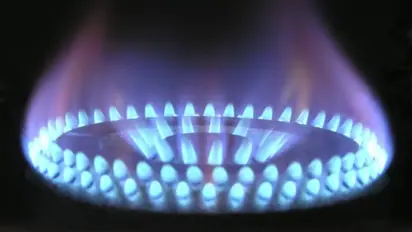CNG, piped cooking gas rates likely to go up as natural gas prices are hiked by 40 per cent

Synopsis
According to the Petroleum Planning & Analysis Cell order, the price of gas from old fields of Oil and Natural Gas Corporation and Oil India Limited hiked to $8.57/MMBtu from $6.1; rates for gas of Reliance-bp hiked to $12.46.
Natural gas prices were on Friday hiked by 40 per cent to record levels, triggering concerns that the CNG and piped cooking gas rates are likely to go up.
According to the Petroleum Planning & Analysis Cell order, the price of gas from old fields of Oil and Natural Gas Corporation and Oil India Limited hiked to $8.57/MMBtu from $6.1. Simultaneously, the price of gas from newer fields like the Reliance-BP-operated deepsea D6 block in the KG basin was hiked from $9.92 to $12.6 per mmBtu, the order said.
Natural gas is used to generate electricity, make fertiliser, and convert into CNG to run automobiles. The global firming up of energy rates is believed to be the reason behind the steep 40 per cent hike in natural gas prices to record levels.
These are the highest rates for free-market areas (such as the KG basin) and for administered/regulated fields (like ONGC's Bassein field off the Mumbai coast). Also, this is the third increase in rates since April 2019 and comes on the back of firming international benchmark prices.
To note, CNG and piped natural gas (PNG) have already risen by over 70 per cent in the last one year. Based on rates prevalent in gas surplus nations such as the US, Canada and Russia, the government sets the price of gas every six months -- on April 1 and October 1. So, the average price from July 2021 to June 2022 determines the price for October 1 to March 31. This is the period when global rates shot through the roof.
The government has set up a committee to review the pricing formula, considering that higher gas prices can potentially further fuel inflation, which has been stubbornly above the RBI's comfort zone for the past eight months. The committee, chaired by former planning commission member Kirit S Parikh, has been tasked with suggesting a 'fair price to the end-consumer' by September-end. However, the committee's report has been delayed.
The government wants to more than double the share of natural gas in the primary energy basket from 6.7 per cent currently to 15 per cent by 2030.
Sources said the latest increase in gas price may result in a rise in CNG and piped cooking gas rates in cities such as Delhi and Mumbai. It will also lead to a rise in the cost of generating electricity, but consumers may not feel any major pinch as the share of power produced from gas is very low.
Stay updated with all the latest Business News, including market trends, Share Market News, stock updates, taxation, IPOs, banking, finance, real estate, savings, and investments. Track daily Gold Price changes, updates on DA Hike, and the latest developments on the 8th Pay Commission. Get in-depth analysis, expert opinions, and real-time updates to make informed financial decisions. Download the Asianet News Official App from the Android Play Store and iPhone App Store to stay ahead in business.